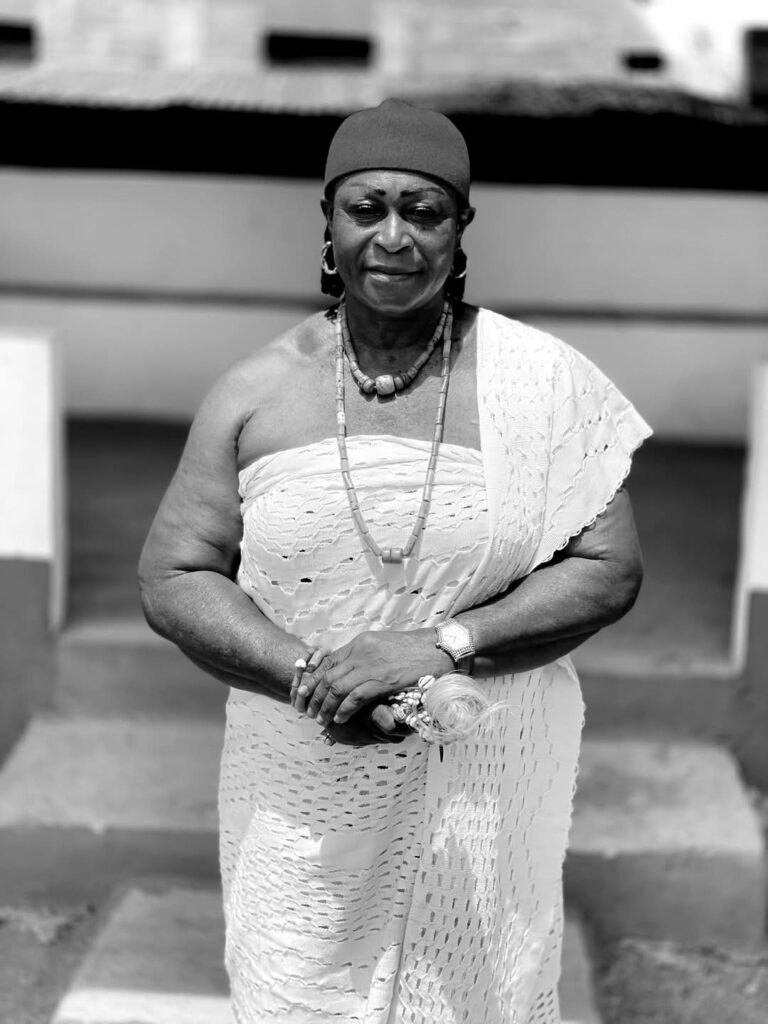the Chieftaincy title among both genders in our Igbo culture

I would like to further discuss the issue of chieftaincy titles among both genders in our Igbo culture.
Prior to Western influence and the need for our people to adopt Western patterns, honorary chieftaincy titles did not exist. One had to complete the rites of initiation into various traditional cults and societies to become a member.
The arrival of Europeans led to these cults becoming a key part of the resistance against them, particularly during the Ekumeku wars. To destabilize them, the Europeans introduced honorary titles through our rulers, ensuring that unqualified individuals received them, thereby diluting the culture. For instance, to become a member of the Nzele society, one had to demonstrate bravery, honesty, and diplomacy. It was not about wealth, but rather character and heart. The Omu title was conferred by the gods, and the selected individual had to undergo strict, life-changing rites and rituals to wield the accompanying power.
Kings were chosen through spiritual means, not government influence. Today, aside from towns that still practice hereditary rulership, no traditional ruler can claim to have attained their position without lobbying or influencing their way to the throne. Most were not even from the ruling clans eligible for kingship. Igbo traditional titles hold spiritual significance.
The creation of honorary titles was primarily to appease wealthy individuals who could not undergo the rites and rituals, fearing the consequences of defaulting on the oaths associated with these titles. They opted to influence traditional rulers to create special titles for them instead.
In my opinion, this is an egoistic nuisance.
All title holders across Ani Igbo have three things in common;
1) They’re bound by and to oaths of secrecy and diligence.
2) They have an Ọfọ and they officiate spiritually and traditionally
3) They function as a check and balance to the traditional rulers.
These three things can be seen across the Igbo nation. The roles and titles differ but still fall within these gambits.
Before you argue that most of our ancestors were bestowed honorary titles in respect to their acts of valour and service to community, I must remind you that such titles were strictly social and elevated them socially above other subjects but not equal to the initiated titled men.
It was a mere recognition by the traditional ruler and not an automatic spiritual responsibility. This is why you can be an Nze but not be on the cabinet of the Obi and you can be on the cabinet but not be an Nze.
In fact, almost all the people who received honorary titles in the olden days were already first, initiates of their Nze or Ogbueshi societies.
Arguing that an honorary title is the same with an initiated title is like arguing that an honorary degree holder in a discipline is more qualified than a graduate of that discipline.
If I’m awarded a honorary degree in Law, does that mean I can now appear in court as a lawyer? Am I now equally qualified as an actual lawyer?
The answer is clear as daylight.
The difference between honorary titles and traditional titles (initiated) is as long as ever. They’re very opposite. An honorary title is like being given a national award for your service or achievements. It doesn’t mean you’re equal to an elected lawmaker.
The Omu is the only recognised female character in the Anioma region that goes through initiations just like the men do. She has an Ọfọ and she sits on the cabinet and equally has her own functions and cabinet. She is bound by oaths and performs rites and rituals. So she has a spiritual, traditional and social-political role in the society.
The Iyom society is ceremonial just like the Otu Odu society and the other female societies. They have no Ọfọ. Their influence is only confined to their members only. A king may appoint an Iyom to his cabinet but such role is ceremonial and only at the request and conditions of the king.
An Iyom cannot perform spiritual functions beyond her personal rites. She’s titled but only as a member of the Iyom society.
The Umuada have a very spiritual and traditional function. They’re the mothers and daughters of the land and they have a collective Ọfọ that is wielded by the isi Ada or onye isi Ada. Theirs is not an individual Ọfọ hence they must act as a body and not individually, unlike the Nzele or Nze who have individual Ọfọ and can on their own perform rituals and traditional rites.
In summary, a non Nze or any of it’s equivalent initiate cannot be seen as equal to an initiated Nze. We must protect our identity and heritage from money politics and influence.
If you are an initiated title holder with an Ọfọ, you have no business collecting aka ito handshake with an honorary title bearer, no matter the situation.
The Ọfọ is the supreme symbol of authority in Igbo land. Whoever does not have it is ceremonial.
Hrh Omu Onyebuchi Okonkwo







Catchy😍🔥
zhjycq
7tdefj